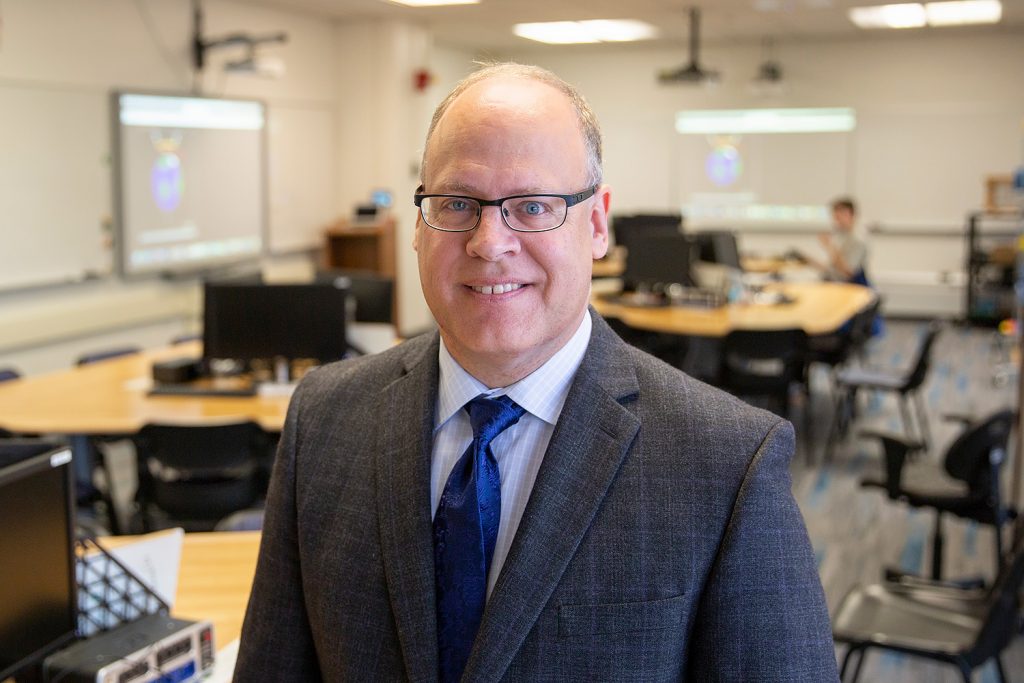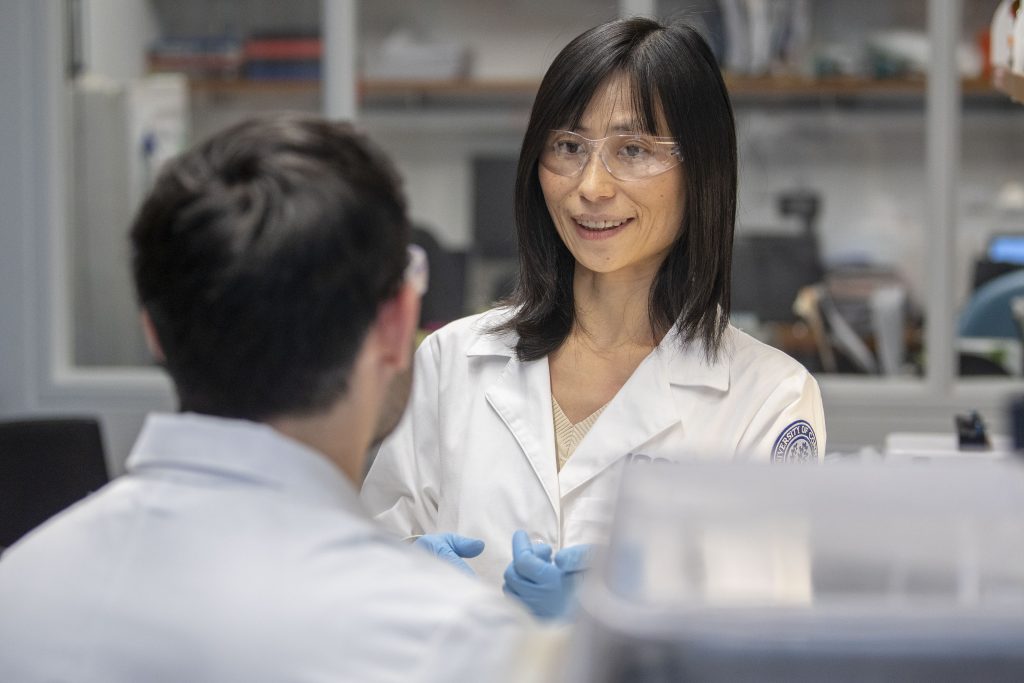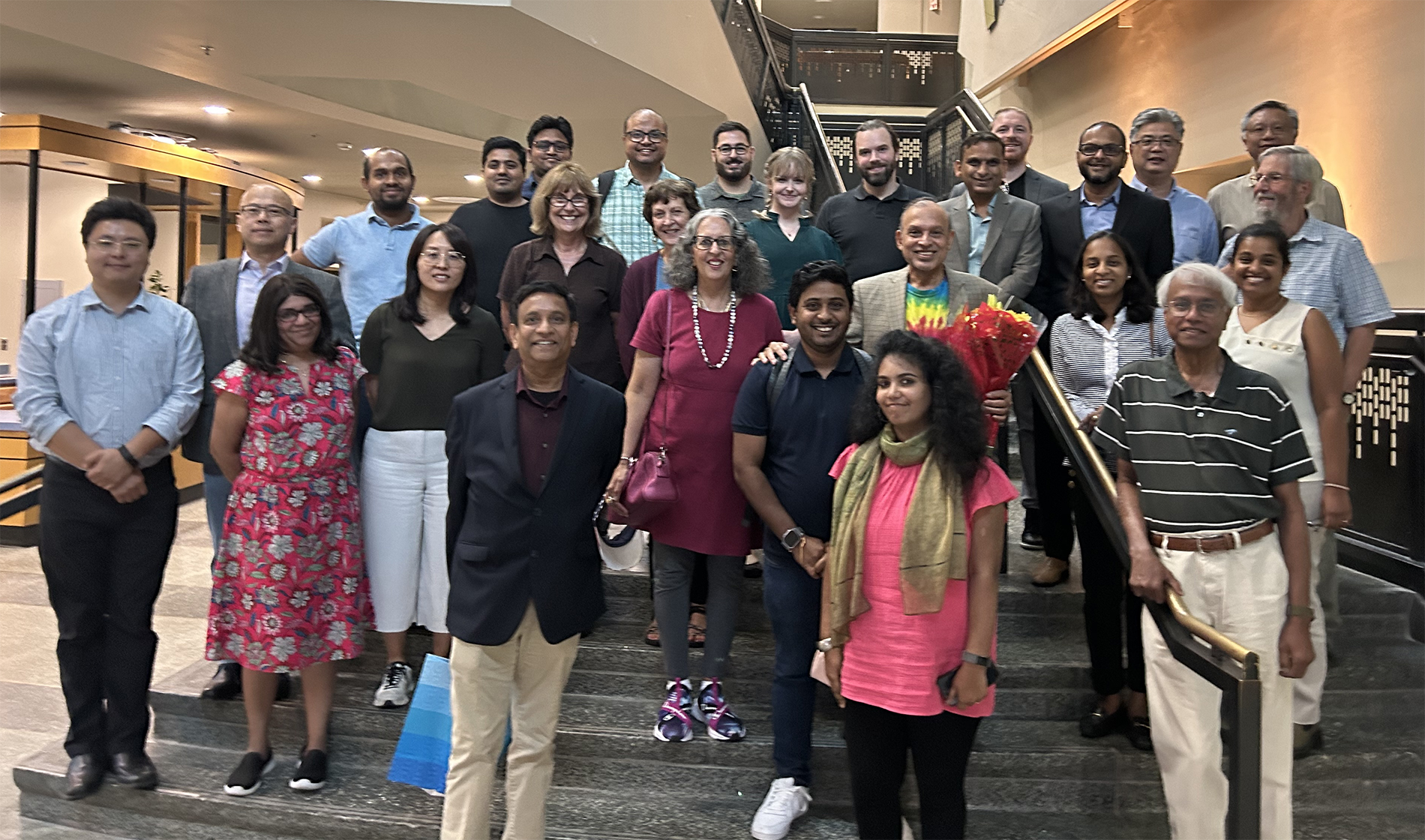
By the time registration closed for the Symposium Celebrating the Research and Education Legacy of Professor Challa V. Kumar, more than 60 delegates from around the world had registered. The event, which also celebrated Dr. Kumar’s retirement as well as his 70th birthday, brought together colleagues, collaborators, friends, and former students of Professor Kumar eager to pay homage to him and to present research on the topic for the day, Chemical Approaches to Biological Materials and Beyond.
The full-day event opened on September 9, 2023, with continental breakfast and a welcome message from Dr. Yao Lin, professor of chemistry and Institute of Materials Science (IMS) resident faculty member. Lin also served as chair for the morning session. IMS Director Dr. Steven L. Suib opened the symposium with remarks that set the tone for the day’s events.
The morning session commenced with Dr. Kumar’s introduction of his longtime friend, Professor and Chief Editor of Science magazine, Holden Thorp. Dr. Thorp emphasized the importance of scientists getting involved in the discussion of societal issues and policies through evidence-based facts. The discussion included science outreach to children, an important topic for all attendees.
Each presentation was preceded by a short introduction from Dr. Kumar, to which he brought a personal connection between himself and each of the presenters. Speakers for the morning session included Professor D. Ramaiah from Birla Institute of Technology, Hyderabad, India. Dr. Kumar and Dr. Ramaiah overlapped at the Indian Institute of Technology Kanpur before Dr. Kumar left for the United States.

Professor Michael Purugganan from New York University described his collaboration with Professor Kumar on DNA-mediated electron transfer at Columbia University. He presented research on the ways in which rice genes have co-evolved with humans over thousands of years, with 13,000 varieties identified so far.
Professor Leah Croucher from the National Institutes of Health (NIH), a former Ph.D. student of Professor Kumar, described her path from the Kumar lab to NIH in reverse chronological order, sharing highlights of her days at UConn along the way.
The last speaker of the morning session was Professor J.K. Barton of California Institute of Technology. Dr. Barton, a recipient of the prestigious Priestly Medal, spoke on electron transfer through DNA. Dr. Barton was also a postdoctoral mentor to Professor Kumar. Her talk led to interesting discussions on the electron transport mechanism and how DNA-mediated electron transport plays an important role in DNA damage, repair, and cancer.

Following lunch, session chair Dr. Rajeswari Kasi, professor of chemistry and IMS resident faculty member, commenced the afternoon session with an introduction of IMS Director and Professor of Chemistry Dr. Steven L. Suib. Professor Suib analyzed the research trajectory of Dr. Kumar over four decades and recounted how the Kumar research group switched gears and meandered through increasingly interesting research topics, building one over the other.
Professor of Chemistry James Rusling spoke about his interactions with Professor Kumar, elaborating on joint and related projects that they often chatted about. Professor of Chemistry Ashis Basu described his research projects on DNA damage, DNA-covalent adducts of carcinogens, and the mechanisms of carcinogenesis. Professor Kasi described some of her most recent work on protein-conjugated cellulose nanocrystals, demonstrating how her work was inspired by her collaborations with Dr. Kumar. Professor Akhilesh Bhambhani, a former Ph.D. student of Dr. Kumar, outlined the key factors for successful design, manufacturing, and deployment of biologics with humorous comparison of Dr. Kumar to the Bodha tree, which gave enlightenment to those who rested beneath it. Dr. Ajith Pattammattel, another former Ph.D. student of Dr. Kumar, elaborated on his research at the Brookhaven National Laboratory. He invited students and faculty to visit the lab to conduct collaborative advanced scattering experiments with a personal story of the instrumental role Dr. Kumar played in his success.
The penultimate talk of the symposium was given by Professor Anna Pyle, a contemporary of Dr. Kumar during her days as a graduate student at Columbia
University. Dr. Pyle described how her group is deciphering the exquisite structures of multiple states of RNA using Cryoelectron microscopy.
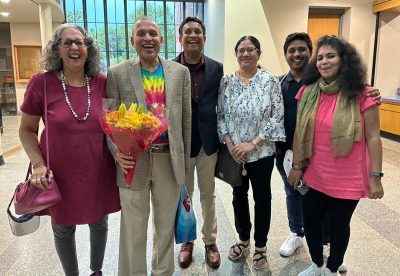
With the last word, Professor Kumar began his plenary talk by thanking his mentors, hosts, and graduate students. He elaborated on the tortuous path taken by his research group, and lessons learned, along the same lines as Professor Suib’s analysis at the beginning of the afternoon session.
The symposium concluded with a standing ovation from the audience, after Dr. Kumar explained how he came to the United States with only $21 and a Ph.D., with no friends or relatives here, and succeeded in achieving his American dream. Truly a career worth celebrating!
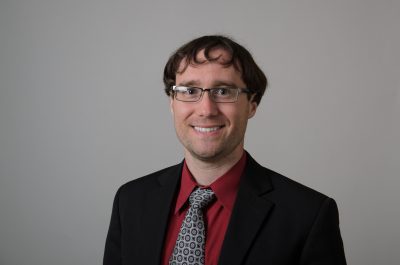
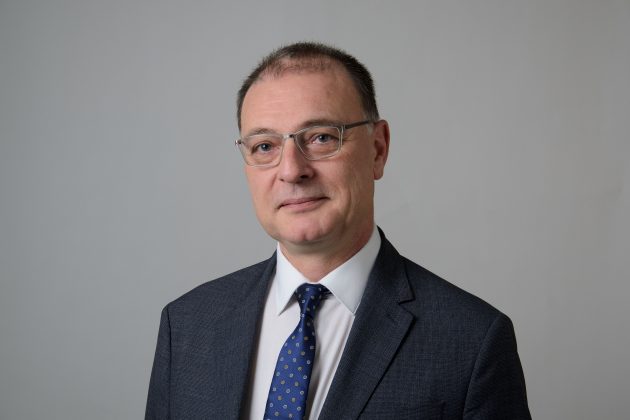
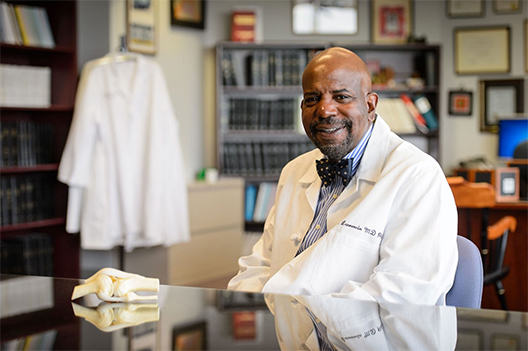 The American Chemical Society (ACS) has selected University of Connecticut’s
The American Chemical Society (ACS) has selected University of Connecticut’s 